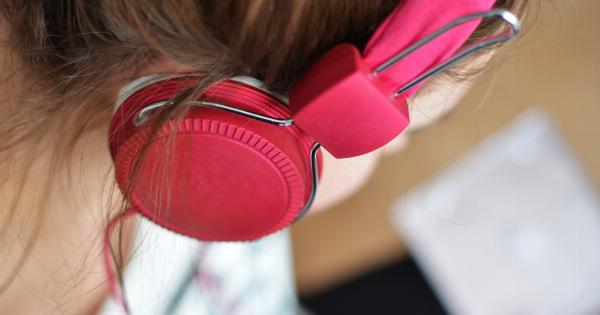Aging is a natural process that affects every individual in various ways. One of the most common changes experienced with age is a decline in hearing ability.
As we grow older, our hearing undergoes changes that can have a significant impact on our daily lives. This article will explore the different aspects of hearing loss associated with aging and provide insights into how to mitigate its effects.
Understanding Age-Related Hearing Loss
Age-related hearing loss, also known as presbycusis, is a gradual decline in hearing ability that occurs as we get older.
It is a common condition affecting millions of people worldwide and can significantly impact communication and overall quality of life. Presbycusis typically affects both ears and often starts with difficulty hearing high-frequency sounds.
Causes of Age-Related Hearing Loss
Several factors contribute to age-related hearing loss. These include:.
1. Changes in the Inner Ear
The inner ear contains delicate hair cells that transmit sound signals to the brain. Over time, these hair cells may become damaged or die, leading to a reduction in hearing ability.
2. Damage from Noise Exposure
Prolonged exposure to loud noises throughout our lives can cause cumulative damage to the hair cells in the inner ear. This damage can contribute to age-related hearing loss later in life.
3. Genetics
Genetic factors can play a role in age-related hearing loss. Some individuals may have a predisposition to hearing loss due to their genetic makeup.
4. Medical Conditions
Certain medical conditions, such as diabetes and cardiovascular disease, can increase the likelihood of age-related hearing loss. These conditions affect blood flow to the ears and contribute to hearing loss.
Symptoms of Age-Related Hearing Loss
The symptoms of age-related hearing loss can vary from person to person. Some common signs include:.
1. Difficulty Hearing High-Frequency Sounds
Individuals with age-related hearing loss often struggle to hear high-pitched sounds, such as the ringing of a telephone or the chirping of birds.
2. Inability to Understand Speech in Noisy Environments
Hearing loss can make it challenging to distinguish speech sounds in settings with background noise, such as restaurants or crowded gatherings.
3. Increased Volume on Electronic Devices
Those experiencing age-related hearing loss may find themselves frequently turning up the volume on televisions, radios, or smartphones to compensate for their reduced hearing ability.
4. Social Withdrawal
Hearing loss can make it difficult to participate in conversations, leading some individuals to feel isolated and withdraw from social settings.
Preventing and Managing Age-Related Hearing Loss
While age-related hearing loss is inevitable for many, there are steps individuals can take to prevent further damage and manage the condition effectively:.
1. Protect Your Ears from Loud Noises
Avoid prolonged exposure to loud noises by wearing ear protection devices, such as earmuffs or earplugs, especially in noisy workplaces or during noisy recreational activities.
2. Get Regular Hearing Check-ups
Regular hearing evaluations can help detect age-related hearing loss early on and facilitate proper intervention. Consult an audiologist who can provide guidance and recommend appropriate hearing aids or assistive listening devices.
3. Maintain a Healthy Lifestyle
Eating a well-balanced diet, exercising regularly, managing chronic health conditions, and avoiding smoking can contribute to overall well-being, including hearing health.
4. Stay Mentally and Socially Active
Engaging in mentally stimulating activities, such as puzzles or learning new skills, can help maintain cognitive function, which is linked to hearing ability.
Social interactions also play a crucial role in mitigating the effects of age-related hearing loss.
Seeking Professional Help
If you or a loved one notices signs of age-related hearing loss, it is essential to seek professional help.
An audiologist can conduct a thorough evaluation and recommend appropriate interventions to help manage the condition and improve quality of life.
Embracing the Changes
While age-related hearing loss can be challenging, it is essential to remember that hearing aids and assistive listening devices can significantly enhance one’s hearing ability.
By seeking proper care and implementing strategies to manage hearing loss, individuals can continue to lead active and fulfilling lives.




























